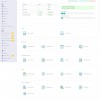What Are Sitting Ducks Attacks?
Sitting Ducks attacks are a form of cyber attack that exploit specific vulnerabilities in the Domain Name System (DNS). The term refers to the ease with which attackers can target domains that are poorly secured or misconfigured. These attacks involve gaining unauthorized control over a domain by exploiting weak points in its DNS settings. Unlike more direct attacks, such as those involving stolen credentials, Sitting Ducks attacks leverage DNS misconfigurations and delegation issues to hijack domains. The result can be a range of malicious activities, including phishing, malware distribution, and reputation damage. Understanding the mechanics of these attacks is crucial for domain owners to safeguard their online assets effectively.
How Sitting Ducks Attacks Work
The technical mechanics behind Sitting Ducks attacks involve exploiting gaps between domain registrars and DNS providers. The attack typically requires four conditions: Name Server Delegation, Lame Delegation, Exploitable DNS Provider, and Unverified Ownership. Name Server Delegation occurs when a domain’s DNS service is managed by a provider different from the domain registrar. Lame Delegation involves authoritative name servers that lack complete domain information, leading to resolution failures. Exploitable DNS Providers are those that allow attackers to claim domain ownership without rigorous validation. Unverified Ownership means that attackers can make changes without needing direct access to the domain registrar’s account. By exploiting these conditions, attackers can hijack domains and redirect them for malicious purposes.
Impact of Sitting Ducks Attacks
The impact of Sitting Ducks attacks can be severe, affecting both individual domain owners and the broader internet ecosystem. For domain owners, the consequences can include unauthorized access to sensitive data, disruption of services, and damage to reputation. Hijacked domains can be used for phishing scams, malware distribution, or fraudulent activities, leading to significant financial and operational losses. On a larger scale, these attacks undermine trust in online systems and transactions, highlighting vulnerabilities in DNS infrastructure. This can erode confidence in internet security and result in broader implications for businesses and users alike.
Preventing Sitting Ducks Attacks
Preventing Sitting Ducks attacks requires proactive measures and a thorough understanding of DNS security. Domain owners should regularly review and update their DNS configurations to ensure that they are correctly set up and secure. It is essential to use DNS services that are properly configured and monitored for vulnerabilities. Domain registrars and DNS providers play a critical role in this process by offering robust security measures and educating domain owners about best practices. Implementing multi-factor authentication, regularly updating passwords, and monitoring domain registrations for unusual activity can also help prevent these attacks. By taking these steps, domain owners can significantly reduce their risk of falling victim to Sitting Ducks attacks.
Mitigation Strategies and Tools
In cases where a domain has already been compromised by a Sitting Ducks attack, prompt and effective mitigation is essential. Tools that identify DNS vulnerabilities, such as DNS lookup tools and security scanners, can help detect and address issues before they are exploited. Mitigation techniques include reconfiguring DNS settings to correct misconfigurations, working with DNS providers and registrars to regain control of the domain, and conducting thorough security audits. Looking ahead, the development of advanced DNS security protocols and industry standards will be crucial in addressing these vulnerabilities. Collaboration between domain owners, DNS providers, and regulatory bodies will be essential in preventing and mitigating Sitting Ducks attacks.
Conclusion
Sitting Ducks attacks represent a significant threat to domain name security, exploiting weaknesses in DNS configurations to hijack domains for malicious purposes. By understanding the mechanics of these attacks and implementing proactive security measures, domain owners can better protect their online assets and maintain the integrity of their digital presence. Regular reviews of DNS settings, robust security practices, and collaboration with DNS providers and registrars are key components of an effective defense strategy. As cyber threats continue to evolve, staying informed and prepared is essential to safeguarding against potential attacks.
FAQs
What is a Sitting Ducks attack?
A Sitting Ducks attack is a domain hijacking technique that exploits vulnerabilities in the Domain Name System (DNS) to gain unauthorized access to registered domains. This can lead to various malicious activities, including phishing and malware distribution.
How can I check if my domain is vulnerable?
To check if your domain is vulnerable, use DNS lookup tools to identify any lame delegations or misconfigurations. Regularly review your DNS settings and consult with your DNS provider for a security assessment.
What should I do if my domain is hijacked?
If your domain is hijacked, contact your domain registrar and DNS provider immediately to report the incident. Work with them to regain control of the domain and take necessary steps to mitigate any damage.
How do DNS misconfigurations contribute to these attacks?
DNS misconfigurations, such as lame delegations, can create gaps that attackers exploit to hijack domains. Proper configuration and regular monitoring are essential to prevent such vulnerabilities.
What are some effective DNS security practices?
Effective DNS security practices include regularly updating DNS configurations, using robust verification methods, and monitoring for any unusual activity. Working with reputable DNS providers and domain registrars can also enhance security.
Read more: Alitech Blog
Tags: Sitting Ducks attacks explained, How Sitting Ducks attacks work, Preventing domain hijacking attacks, DNS vulnerabilities and Sitting Ducks, Impact of Sitting Ducks domain attacks, Mitigation strategies for DNS attacks, Domain security best practices, Detecting DNS misconfigurations, Protecting against domain hijacking, DNS security measures for domain owners, Understanding domain name system threats, How to secure your domain from attacks, Sitting Ducks attack prevention tips, Tools for identifying DNS vulnerabilities, Managing DNS settings to prevent attacks, Domain registrar security practices, Comprehensive guide to DNS attack prevention, Analyzing Sitting Ducks attack impact, Practical steps to mitigate DNS threats, Securing your domain from Sitting Ducks attacks


















